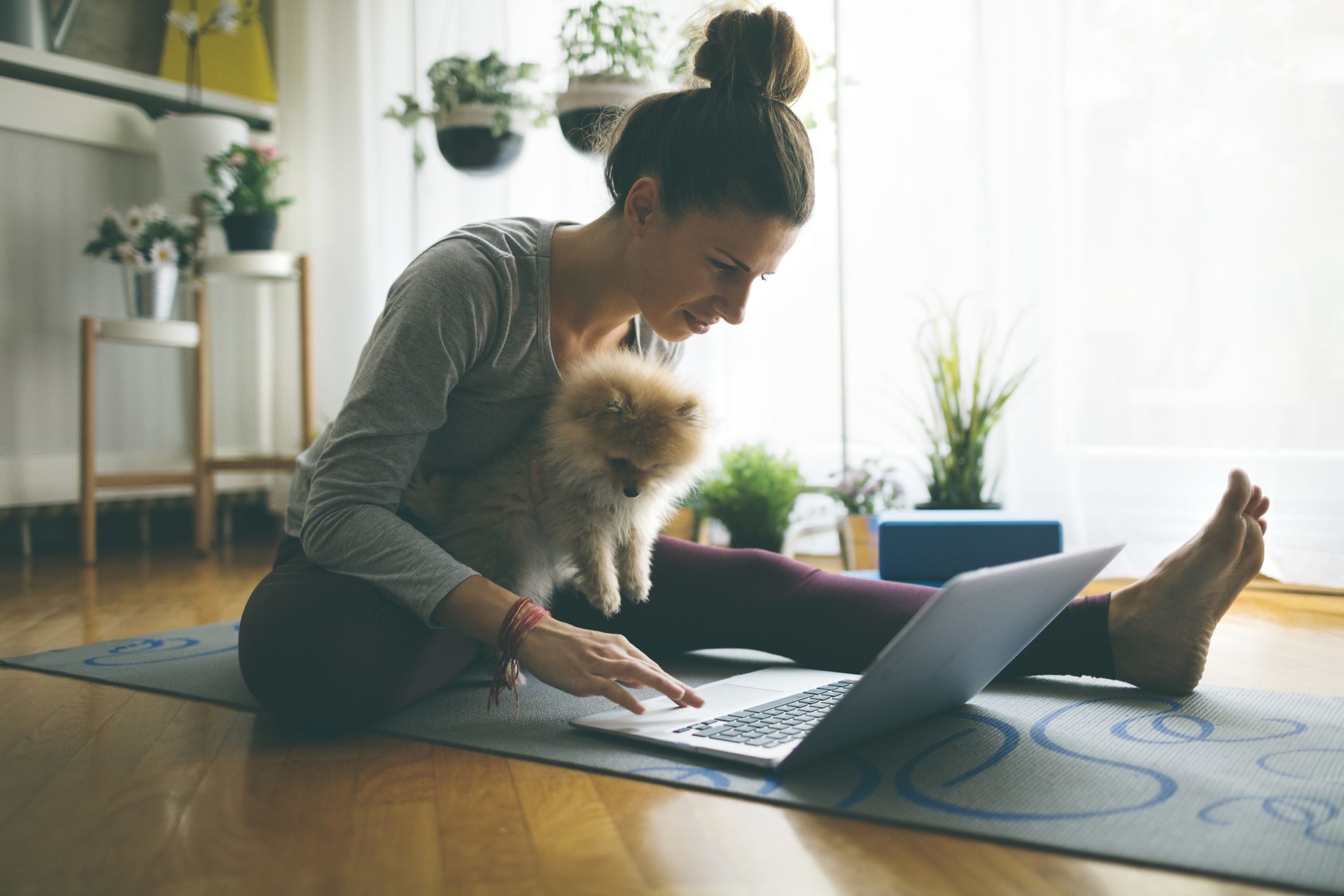What To Do If You’re Experiencing ‘Vicarious Trauma’ After The Capitol Attacks
In the wake of the attack on Capitol Hill and in the days before President-Elect Joe Biden’s inauguration on January 20th, tensions are high across the country.
If you’re feeling particularly anxious or stressed amidst the ongoing political unrest, you’re not alone.
Representative Alexandria Ocasio-Cortez opened up about her own struggles after the Capitol attack in an Instagram Live earlier this week.
“So far I’ve just been trying to give myself a lot of rest,” Rep. Ocasio-Cortez said. “And I definitely know that my body and my brain have been at work because I’ve had two days since the attack where I just slept a lot more than I usually sleep. That to me is telling me that my body is going through something and my brain is trying to heal, and so I’m just trying to give myself as much rest as possible.”
She added that she plans to seek professional help. “I’m sure I’m going to talk to somebody and just seek and discuss with a counselor, just to make sure that we can get started on that path on the right step. I’m not ashamed to say that because I think nobody should be ashamed to say that.”
During a global pandemic where millions of people have lost loved ones due to COVID-19, she said she wants to show people that it’s okay to ask for help. “If I want to be a good leader and set a good example, I have to show that I’m willing to do the steps that I think everybody should be willing to do,” she said.
A post shared by Alexandria Ocasio-Cortez (@aoc)
Even if you only witnessed the Capitol attacks from afar, you too may be suffering the effects of the trauma. “There are a lot of researchers who are… suggesting that vicarious trauma is real, and so it doesn’t have to be you, but it could be someone who looks like you or people you identify with,” says Candice Hargons, PhD, assistant professor of educational, school, and counseling psychology at the University of Kentucky.
During this time of political unrest, there is a very real sense of fear about what might happen over the next few weeks. Here are some strategies on how to deal with the anxiety and stress you might feel during this difficult time.
Limit your news intake.
“Set limits on how much news you take in, and of course, take it in from reputable news sources,” Hargons says. “Even if it’s 30 minutes or less, you’ll still be informed, but you won’t be overwhelmed.”

To stay informed without exposing yourself to violent imagery, she suggests reading articles instead of watching footage of the attack. “For people of color, in particular, we don’t need this type of evidence to know that white people are going to be treated differently by the police. There are several hundred years of evidence.”
Stop doomscrolling.
She also suggests limiting social media. “If you’re scrolling, you can get lost for way longer than you can get lost in the news,” Hargons says. You’re also more likely to be exposed to triggering images of violence. “Those are the things that tend to be virally shared. That vicarious trauma can really be tough to take in, and so setting some parameters around how much you’ll use [social media] and what you’ll use it for are important.”
Monitor your body.
Anxiety and stress manifest in a variety of ways, some of which can be physical.Stomachache, increased heart rate, tense muscles, shallow breathing, and headaches are some of the body’s ways of telling you it needs to calm down.

When you’re feeling physical symptoms of stress, Hargons recommends “mind-body exercises like deep breathing,” guided meditation, or going for a walk, which are all examples of “things that get your nervous system to reset, so that you don’t feel that physical sensation of fear.”
Prioritize sleep.
A long-term symptom of stress is sleep disruption. “When you start finding yourself having a harder time getting to sleep or waking up in the middle of the night around 3 a.m. or 4 a.m., that’s a sign that your body is struggling with something,” Hargons says.

If you wake up in the morning and feel groggy, you probably didn’t get high-quality sleep. In order to de-stress before bedtime, she recommends switching off your electronic devices 30 minutes before you plan to fall asleep and relaxing by reading a book, sipping a cup of tea, meditating, or journaling. “Only use your bed when you’re sleeping or doing fun stuff like making love, as opposed to being on your phone or computer.”
Don’t isolate yourself.
When we’re alone, it’s easier for stress to spiral. “Stay close with the people who you love and who love you,” Hargons says. “That’s tough to do, since we’re still in a global pandemic.” Make sure to block time out every day to speak to your loved ones, because they can help ground you.
Even if you think you’re all Zoom’d out, it’s still a good idea to choose a video call over texting. Per Psychology Today, there’s research showing that face-to-face interaction is better for you than texting; it increases feelings of “empathy, connection, and compassion for others.”
Talk to a professional.
“If you don’t have a therapist, look for one,” Hargons says. “If you have one, make sure that your appointments are as regular as you need them to be right now so that you have somebody who is licensed and trained to help you process all of what this moment might mean to you.” (For lower-cost options, there’s also group therapy and virtual therapy.)

If you’re searching for a therapist, the American Psychological Association or the Anxiety and Depression Association of America can help you find one.
Ultimately, do what’s right for you.
“Stay as informed as is healthy for you,” Hargons says. “Everybody has a different threshold for what that is, and so know yourself, know when you’re getting anxious, know when you feel that in your body, that it’s time to stop. It’s okay to pause for a while and do something that facilitates your wellbeing.”
Source: Read Full Article
